Tomoyoshi Miura Declares to Continue Next Season: Flamboyant Photos from Ginza Club and Yokohama
 Kaz, 45, went to a high-class cabaret club in Yokohama after the game (July 6, 2012 issue).
Kaz, 45, went to a high-class cabaret club in Yokohama after the game (July 6, 2012 issue).
The nickname “King Kazu” became established around 1996.
On November 24, the final match of the JFL (Japan Football League) took place, featuring a game between “Suzuka Point Getters” and “FC Maruyasu Okazaki.” From the 27th minute of the second half until the end of the match, Suzuka forward “King Kazu,” Kazuyoshi Miura (57), took the field.
With this appearance, he extended his own record for the oldest player in JFL history to 57 years and 272 days. Heading into his 40th professional season next year, he announced that he would continue playing for Suzuka, aiming for promotion to J1 alongside his teammates.
“Kazu pursued his dream of becoming a professional soccer player by traveling to Brazil at the age of 15. In 1986, at 19 years old, he signed a professional contract with ‘Santos FC,’ a prestigious club that was once home to the legendary Pelé. This marked the beginning of ‘Kazu’s’ name becoming recognized in Japan. He returned to Japan in July 1990, before the launch of the J-League, and joined ‘Yomiuri Soccer Club’ (now Tokyo Verdy).
During the inaugural J-League season in 1993, Kazu scored 20 goals, the highest among Japanese players, contributing significantly to Verdy’s championship win and earning the league’s MVP award. From 1994 to 1995, he transferred to ‘Genoa CFC’ in Italy’s Serie A, becoming the first Asian player in Serie A history,” explains a soccer magazine editor.
In 1994, he topped the high-income earners list in the professional sports category (with an estimated annual income of ¥282.4 million). In 1996, he became the J-League’s top scorer. Around this time, media coverage featuring headlines like “King Kazu” helped establish the nickname “King” for Miura.
At a high-end hostess club in Yokohama with a kimono-clad beauty.
FRIDAY had been closely following Kazu ever since his return from Brazil, reporting on various facets of his life as “King,” including an exclusive interview immediately after he topped the high-income earners list and accounts of his lavish outings at Ginza clubs. Among these, one particularly memorable event was a night spent by 45-year-old Kazu at Yokohama’s most luxurious club after a match. Let’s revisit the article published in the July 6, 2012, issue.
On June 13, 2012, Kazu’s team, Yokohama FC, suffered a narrow 1-0 defeat against Oita Trinita, and Kazu himself did not appear in the game. One might have expected the King to be downhearted, but just an hour after the match, he drove to Yokohama’s Kannai entertainment district. Stepping out of his car, he knocked on the door of a top-class hostess club.
“You could tell it was Kazu at a glance. His tall, slender figure stood out, and he was impeccably dressed in a yellow top and pure white pants, which made him very noticeable inside the club. It seemed he left after about an hour,” said a fellow customer who witnessed the scene.
As Kazu exited the club, a kimono-clad woman—presumably the club’s hostess—stood by his side, bidding him farewell. After a brief chat, Kazu departed. Even off the pitch, the trailblazer of Japanese soccer showcased an impressively polished way of enjoying nightlife.
Special class at elementary school.
On November 21, Kazu held a special class at Akio Elementary School in Suzuka City, Mie Prefecture. This event, part of a local initiative he has participated in for over 20 years, aims to inspire children in the community. Reflecting on his decision to move to Brazil at 15, he shared this story:
“At that time, my teacher said to me, ‘Even if you go, there’s a 99% chance you won’t make it as a professional or succeed.’ I responded, ‘There’s a 1% chance? Then I’ll believe in that 1%.’ With those words, I left school and went to Brazil.”
King Kazu will likely continue playing until his passion is entirely spent, serving as an inspiration to children chasing their dreams.
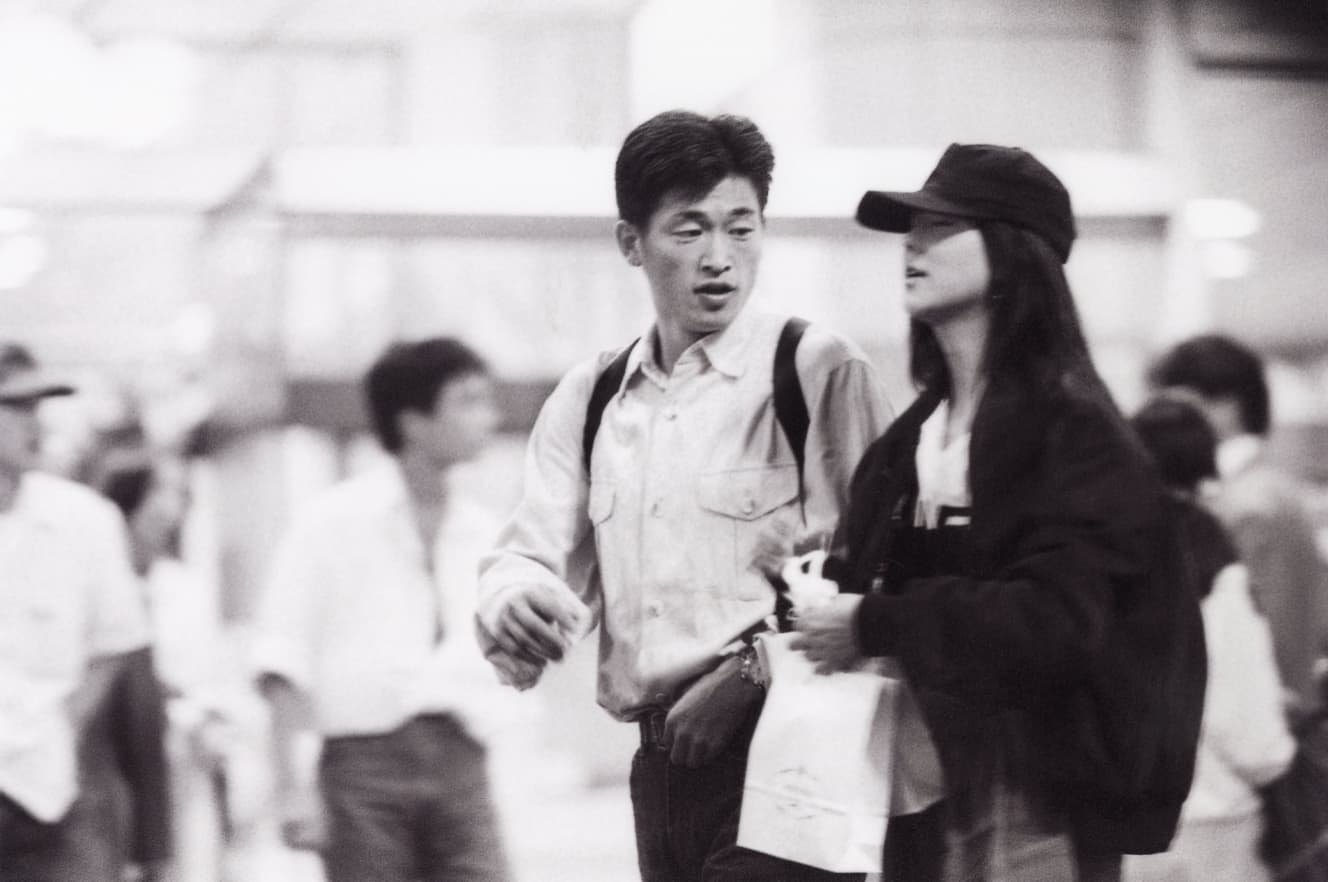
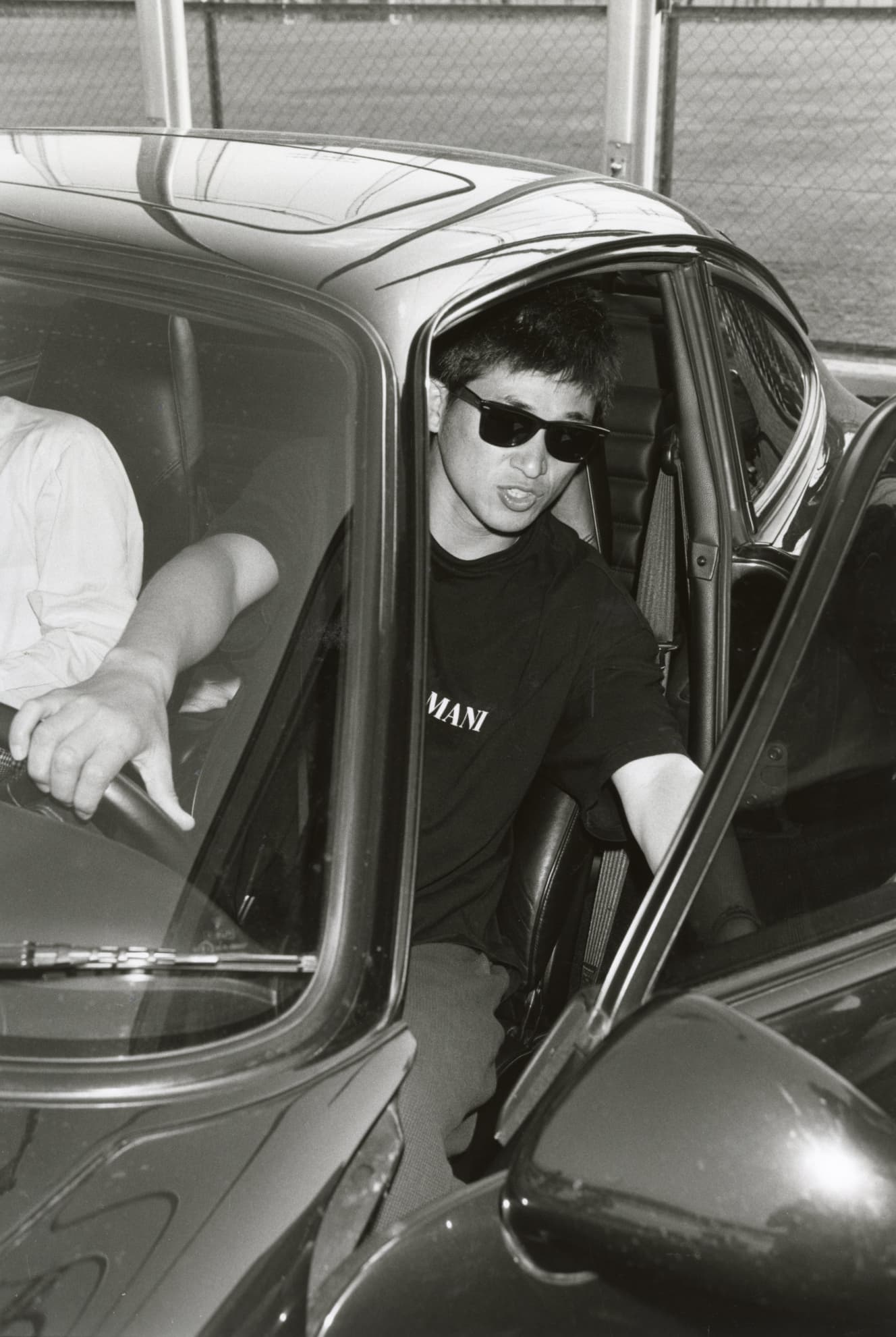
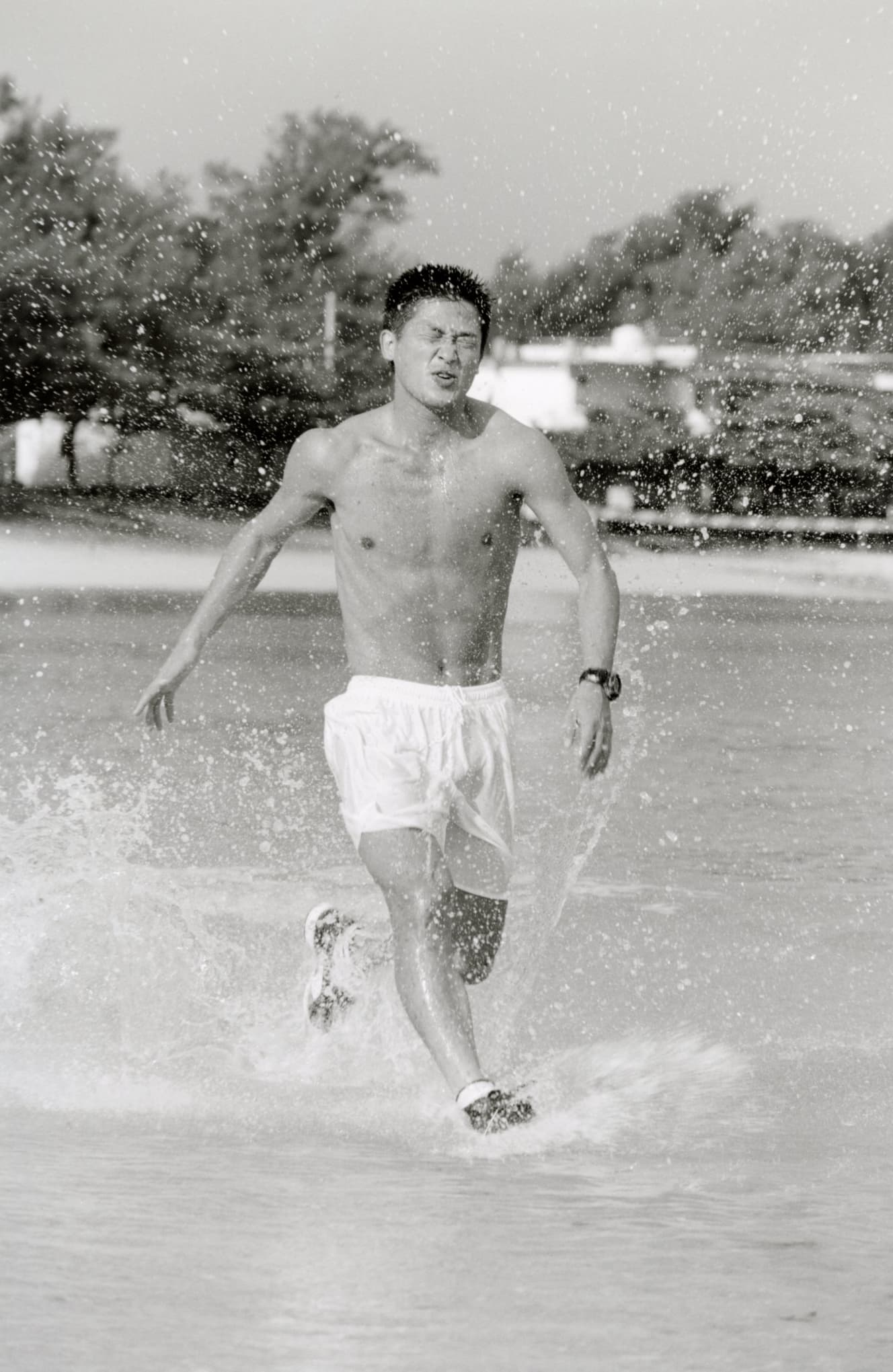
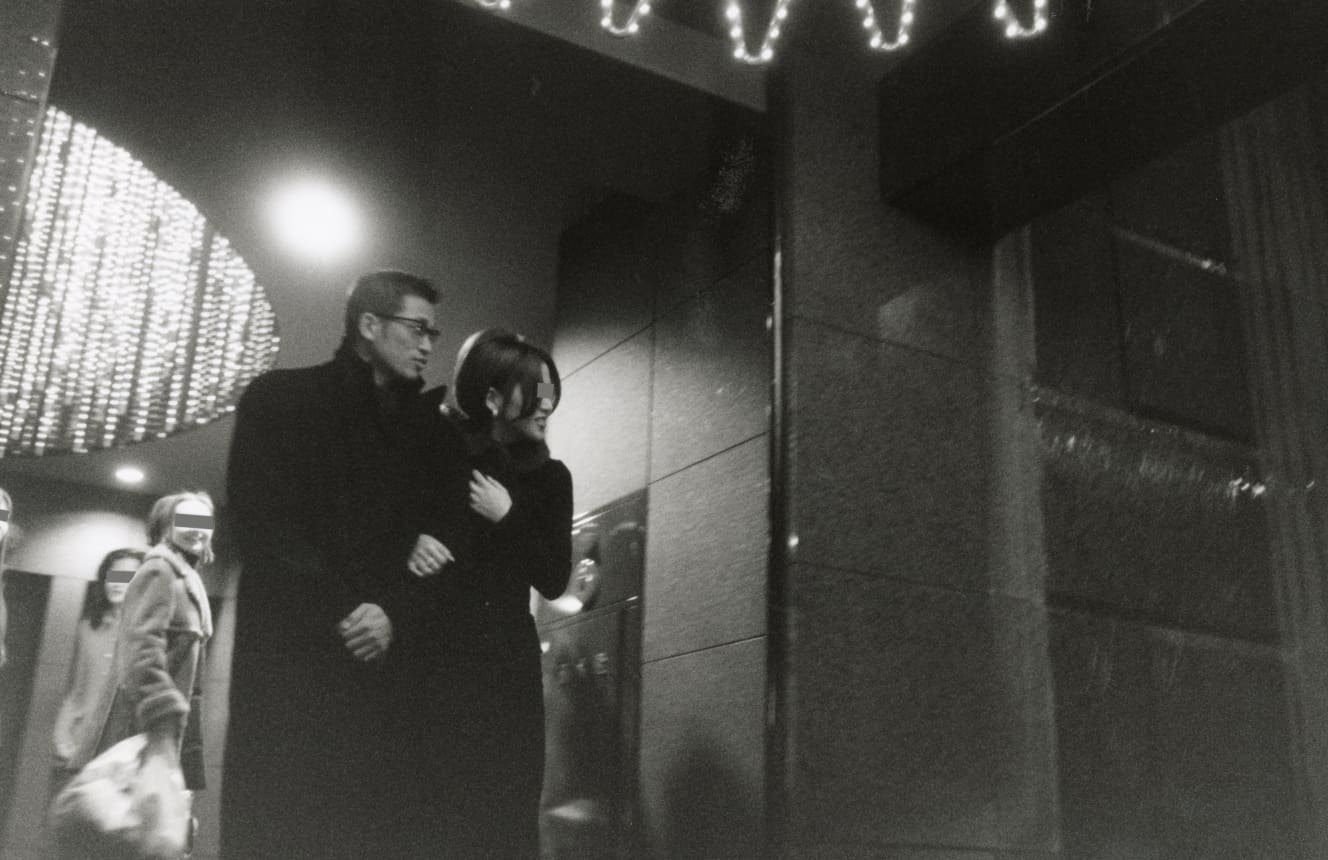
 Kaz signing autographs for fans gathered at the training ground of Vissel Kobe, his team at the time (December 14, 2001 issue).
Kaz signing autographs for fans gathered at the training ground of Vissel Kobe, his team at the time (December 14, 2001 issue).

 A dapper-looking Kazu walking alone through Yokohama’s Kannai district (July 6, 2012, issue).
A dapper-looking Kazu walking alone through Yokohama’s Kannai district (July 6, 2012, issue).
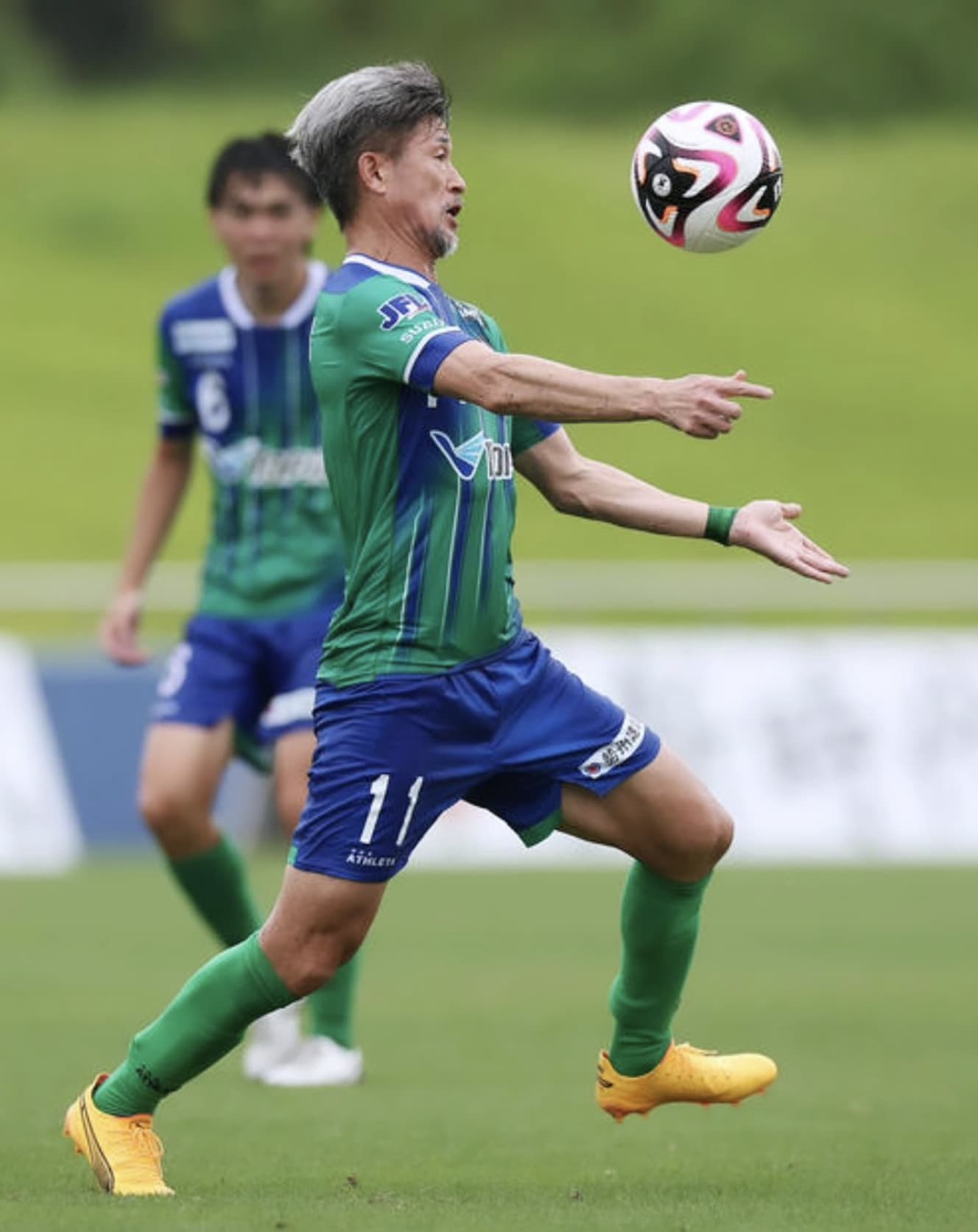
PHOTO: Haruki Honda (1st and 9th pictures), Katsumi Ishida, Shinya Inui (3rd and 4th pictures), Toshihiro Nakaikawa, Yukiko Fukuyama, Sota Shima (7th and 8th pictures)